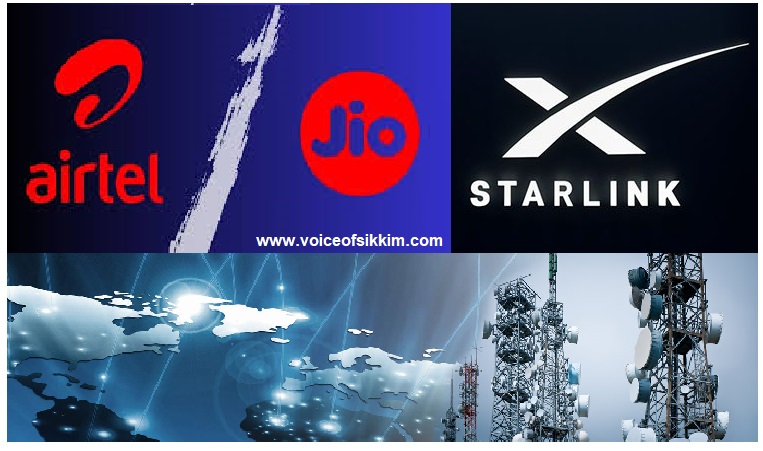
India’s tech landscape is on fire, and it’s all thanks to a brewing rivalry between two of the world’s wealthiest and most influential figures—Elon Musk and Mukesh Ambani. The two titans are setting their sights on India’s burgeoning satellite broadband market, and neither is willing to back down.
On one side, we have Musk’s Starlink, a global leader in satellite internet that beams high-speed internet from thousands of low-earth-orbit satellites 482 kilometers above Earth. Starlink’s appeal lies in its ability to deliver blazing-fast speeds and low latency, all without relying on traditional ground infrastructure like fiber cables or cell towers. It’s a futuristic, space-age solution that has the potential to provide stable internet connectivity, even in remote regions.
But there’s a catch: India’s telecom giants, Reliance Jio and Airtel, are determined to carve out their own share in this booming market. Both companies, backed by industry powerhouses, understand that the satellite broadband market in India is projected to grow at an astonishing 36% annually and hit $1.9 billion by 2030. The stakes are high, and they’re ready to fight.
The Regulatory Twist
Here’s where things get even more interesting. Rather than auctioning off the satellite spectrum like it did with 4G and 5G, the Indian government plans to allocate it administratively. Telecom Minister Jyotiraditya Scindia has announced that pricing will be overseen by the Telecom Regulatory Authority of India (TRAI). Musk supports this approach, calling it a “global standard,” but Ambani’s Reliance Jio is pushing back, arguing that an auction would maintain a fair and competitive environment—especially with foreign giants like Starlink entering the market.
According to Jio, administrative allocation could give Starlink an undue advantage, calling it a violation of ITU rules. Starlink, however, counters that such an allocation is both fair and necessary for the nascent satellite broadband industry. With each side pointing to different interpretations of global standards and national interests, it’s no surprise that the debate has reached a fever pitch.
Why Does This Matter?
Satellite broadband holds the power to reshape India’s internet landscape, particularly in underserved rural and remote regions where traditional broadband infrastructure struggles to reach. It can be a game-changer for rural communities, enabling access to vital services like telemedicine and digital education while creating opportunities for new, connected industries.
Moreover, satellite broadband could unlock potential in the Internet of Things (IoT) sector, with implications for everything from smart cities to connected devices, even in India’s most isolated corners. For consumers, this competition might mean better choices, greater connectivity, and even price wars that drive down costs.
The Battle Lines Are Drawn
As Musk and Ambani lock horns over satellite spectrum policy, India’s satellite broadband market is poised at a pivotal juncture. Starlink’s global experience and advanced satellite technology give it an edge, but Jio’s local influence and extensive customer base in India are formidable assets.
Who will win this high-stakes battle for India’s satellite broadband market? Only time will tell. One thing is certain: this billionaire showdown is not just about business—it’s about shaping the future of connectivity in one of the world’s most dynamic digital markets. Will Musk’s Starlink beam down victory from the skies, or will Ambani’s Jio secure its dominance on home turf? Stay tuned, because this is one tech battle you won’t want to miss.





